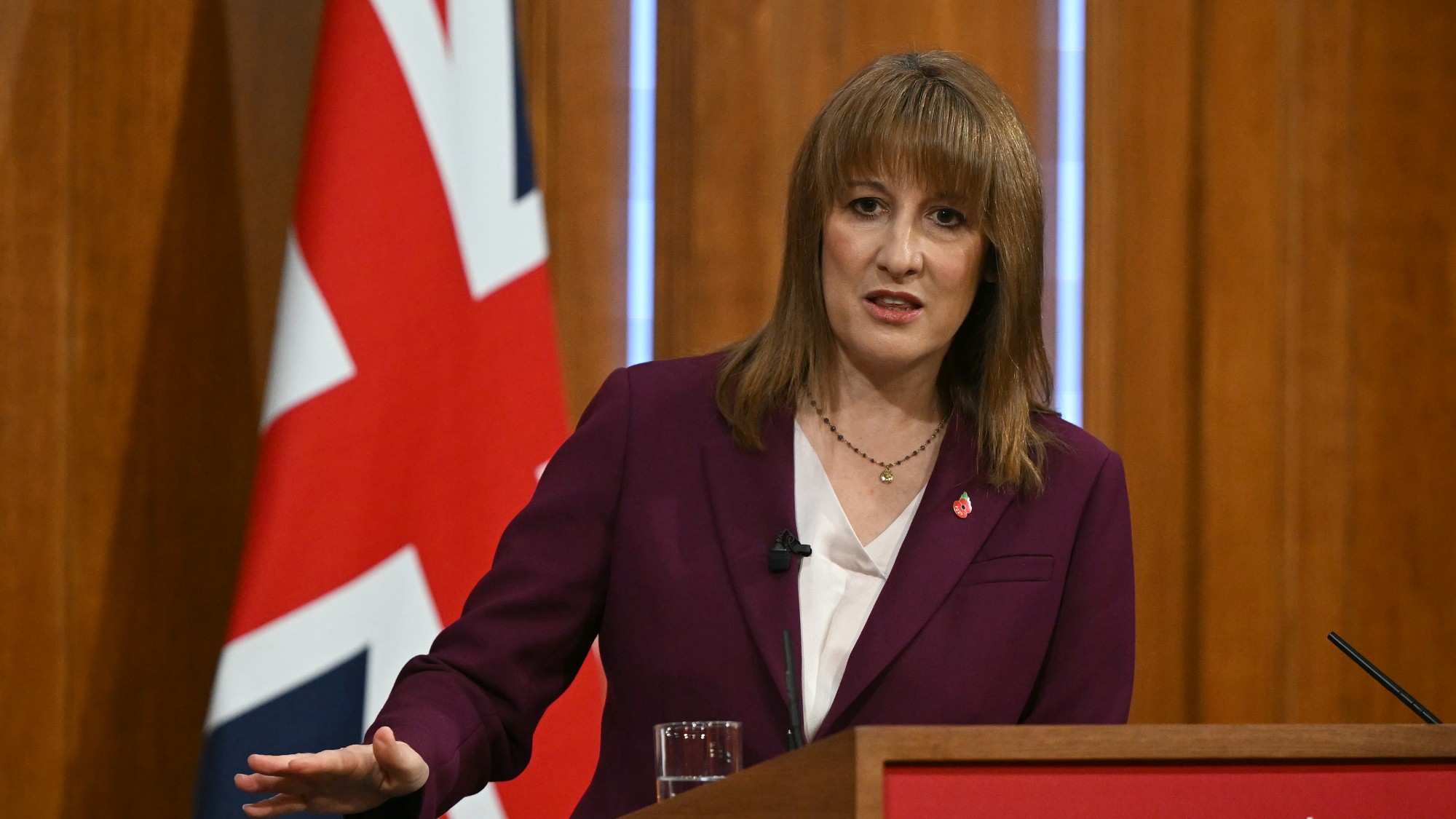Tories spend more on London than the rest of England
New findings will likely be a blow to Boris Johnson’s plans to ‘level up’ the UK economy

A free daily email with the biggest news stories of the day – and the best features from TheWeek.com
You are now subscribed
Your newsletter sign-up was successful
Successive governments have spent a disproportionate amount of their budgets on wealthy London over the last 20 years, leaving some of the UK’s most deprived areas critically underfunded, a new report has found.
According to centre-right thinktank Onward, both Labour and Conservative governments have spent much more on transport, science, affordable housing and culture in London than elsewhere in England over many years. The amount of per-person spending in London on research and development - which The Sun notes is “crucial to boosting productivity levels” - was nearly twice the UK average since 2001.
The findings will likely be a blow to Prime Minister Boris Johnson, who pledged after his landslide election victory in December to “level up” the British economy by distributing spending more evenly across the country. But what do the stats say, and how might Chancellor Rishi Sunak use next week’s budget to address the issue?
The Week
Escape your echo chamber. Get the facts behind the news, plus analysis from multiple perspectives.

Sign up for The Week's Free Newsletters
From our morning news briefing to a weekly Good News Newsletter, get the best of The Week delivered directly to your inbox.
From our morning news briefing to a weekly Good News Newsletter, get the best of The Week delivered directly to your inbox.
What do the stats say?
In a report compiled for Onward, Neil O’Brien, a Tory MP and former adviser to George Osborne, found that the “most growth-enhancing items of public spending – transport, innovation, housing and culture – are skewed towards London and other regions that are already productive”.
The report found that capital spending on transport in London was around £6,600 per head between 2007/8 and 2018/19 - more than three times higher than in the East Midlands (£1,880) or South West (£1,980) and nearly three times the average in the rest of England (£2,400).
Furthermore, London saw research and development funding nearly twice the UK average when direct government spending and research funding for universities were combined, seeing around £3,900 per head compared to a national average of £2,300, while arts spending was also far higher in London than elsewhere.
A free daily email with the biggest news stories of the day – and the best features from TheWeek.com
But the greatest disparity was seen in housing infrastructure. Spending on affordable housing in the current (2016-21) programme is five times higher per head in the capital than in the rest of the country at £650 per head, compared to £120 per head in the rest of England.
“Funding to unlock housing supply (including infrastructure to support private housing) is also concentrated in the south,” the report says, adding: “The Housing Infrastructure Fund has spent £115 per head in the East of England, £97 in London, £95 in the South East, and £79 in the South West, compared to £10 in the West Midlands and just £4 in Yorkshire.”
What are the solutions?
According to The Guardian, the Treasury has been “looking at rewriting its rules to permit greater investment in areas such as the north of England and the Midlands” after “years of complaints that the current system overly favours London and the south-east”. But O’Brien has suggested that while Boris Johnson’s mission to level up poorer parts of the country is “vital”, in order to “change trends that have gone in the wrong direction for decades will need not a few tweaks, but taking a bazooka to the problem”.
“It is no wonder some parts of the country feel short-changed. For decades we have piled fertilizer on the parts of our economy that are already flourishing while refusing to water the seeds of growth elsewhere,” he wrote.
–––––––––––––––––––––––––––––––For a round-up of the most important stories from around the world - and a concise, refreshing and balanced take on the week’s news agenda - try The Week magazine. Start your trial subscription today –––––––––––––––––––––––––––––––
At the bottom of the report, he lists a number of recommendations to the chancellor ahead of next week’s budget.
These include review the Treasury’s Green Book methodology to “take into account the relative as well as absolute returns to local economies from infrastructure projects” and “weighting Benefit Cost Ratios (BCRs) to account for the economic and social benefits of balanced growth”.
He also recommends the devolution of transport powers to more places in England, making the “business cases for all proposed infrastructure projects public to improve transparency”, and “redirecting cultural funding away from the national institutions and reinvest the savings in growing cultural provision outside London, particularly for new institutions in areas where there is a clearer link to economic development and regeneration”.
-
 ‘Restaurateurs have become millionaires’
‘Restaurateurs have become millionaires’Instant Opinion Opinion, comment and editorials of the day
-
 Earth is rapidly approaching a ‘hothouse’ trajectory of warming
Earth is rapidly approaching a ‘hothouse’ trajectory of warmingThe explainer It may become impossible to fix
-
 Health insurance: Premiums soar as ACA subsidies end
Health insurance: Premiums soar as ACA subsidies endFeature 1.4 million people have dropped coverage
-
 Local elections 2026: where are they and who is expected to win?
Local elections 2026: where are they and who is expected to win?The Explainer Labour is braced for heavy losses and U-turn on postponing some council elections hasn’t helped the party’s prospects
-
 How corrupt is the UK?
How corrupt is the UK?The Explainer Decline in standards ‘risks becoming a defining feature of our political culture’ as Britain falls to lowest ever score on global index
-
 The high street: Britain’s next political battleground?
The high street: Britain’s next political battleground?In the Spotlight Mass closure of shops and influx of organised crime are fuelling voter anger, and offer an opening for Reform UK
-
 ‘Journalism is on notice’
‘Journalism is on notice’Instant Opinion Opinion, comment and editorials of the day
-
 ‘City leaders must recognize its residents as part of its lifeblood’
‘City leaders must recognize its residents as part of its lifeblood’Instant Opinion Opinion, comment and editorials of the day
-
 Is a Reform-Tory pact becoming more likely?
Is a Reform-Tory pact becoming more likely?Today’s Big Question Nigel Farage’s party is ahead in the polls but still falls well short of a Commons majority, while Conservatives are still losing MPs to Reform
-
 Will Rachel Reeves’ tax U-turn be disastrous?
Will Rachel Reeves’ tax U-turn be disastrous?Today’s Big Question The chancellor scraps income tax rises for a ‘smorgasbord’ of smaller revenue-raising options
-
 Will the public buy Rachel Reeves’s tax rises?
Will the public buy Rachel Reeves’s tax rises?Today’s Big Question The Chancellor refused to rule out tax increases in her televised address, and is set to reverse pledges made in the election manifesto